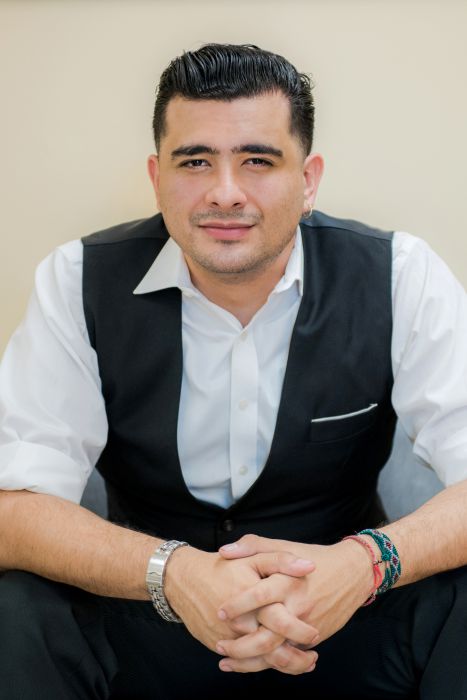
When California State University, Dominguez Hills (CSUDH) political science major Marco Vasquez began the UCLA Law Fellows Program he felt like an underdog; that was until an in-class assignment was passed out.
The prestigious program was launched by UCLA’s School of Law Academic Outreach Resource Center to prepare “high-potential” undergraduate and graduate students for careers in law, increase the diversity of students in law school, and “demystify the law school experience.”
The fellowship program’s “introduction ceremony” in January 2016 was attended by mostly University of California students from such campuses as UCLA, UCI and UC Berkeley, as well as students from USC and a variety of prominent institutions on the east coast. This year the program received over 500 applications, but only about 90 were admitted.
Vasquez admits that the caliber of the students was initially intimidating for him.
“When I first learned that I got the scholarship, it was unbelievable. It made me humble and proud to say I’m from California State University, Dominguez Hills. There are a lot of people at UCLA who kind of look down at Cal State campuses, and other schools. So I felt like an underdog,” said Vasquez, a Hawthorne resident. “But when they passed out law school-level work in class, it wasn’t anything that was unfamiliar. It was pretty much the same work I’ve turned in to Dr. [Salvatore] Russo [assistant professor of political science at CSUDH]. In fact, I ended up helping other students out at the first seminar.”
The Law Fellows Program format is made up of several components. It consists of five monthly Saturday “academies” held at the law school that feature advanced legal instruction by UCLA faculty. Coinciding with the in-class assignments and homework, the fellows become familiar with court cases and a variety of other materials used in law school. They also attend seminars and panel discussions led by staff, alumni and other members of the legal community, and each student is assigned a mentor to work with throughout the program.
Vasquez’s love of law and debate began before he enrolled at CSUDH and met Russo, who he calls his mentor. As an advanced placement (AP) student at Inglewood High School, an inner-city school with only five AP classes, he felt somewhat stifled by the lack of curriculum for advanced students.
“We had no debate club, but we did do a mock trial regarding the Salem witch trials. It was my first taste of law. It turned out I was pretty good a debate,” said Vazquez, who is a member on CSUDH’s mock trial team. “I thought, ‘this is something that I actually enjoy.’ I’ve have always had a fascination with writing and history, and when I added those interests and debate to my new found enjoyment of the trial process, I began to think that law could be right for me.”
When Vasquez began attending CSUDH and started taking political science classes it affirmed that he had pointed his academic career in the right direction. He was awarded the Court Observer Program internship, in which he “shadowed” a superior court judge at the Torrance Courthouse, and where he decided, “Yes, I want this as a career, and want this out of life.”
Vasquez enrolled in Russo’s Constitutional Law course, calling it “the most difficult class that I ever took.”
“Every class I’ve taken here so far that features constitutional law, particularly those with Dr. Russo, have taught me much of what I’m learning now at UCLA. It’s all about ‘What’s the case?’ ‘What are the facts about the case?’ ‘What’s the rule of law?’ ‘What’s the rulings of the court?’ and then ‘Tell me the significance of the case.’ But that’s not all there is. There’s a lot more out of the fellowship.”
Vasquez wants to get a master’s degree and earn a Juris Doctor (JD) with the end goal of becoming a public defender. To help, the UCLA Law Fellows Program also requires its students to complete a JD Action Plan and meet with the directors of the program regularly until they matriculate to law school, which could be several years.
When Vasquez completes the fellowship in June, he and all the students will receive a scholarship for a Law School Admissions Council (LSAT) preparation course, which can cost up to $2,000 according to Vasquez. They will also receive continued academic support, mentoring, counseling and career guidance.
“Those relationships alone are worth the time we will spend in the program,” he said. “When I walk away from fellowship I know I’ll be much better prepared for law school, but like usual, what I’ll be thinking is ‘What will again make me feel uneasy, or out of place?’ What’s going to get me out of my comfort zone?’ ‘What’s next?’”